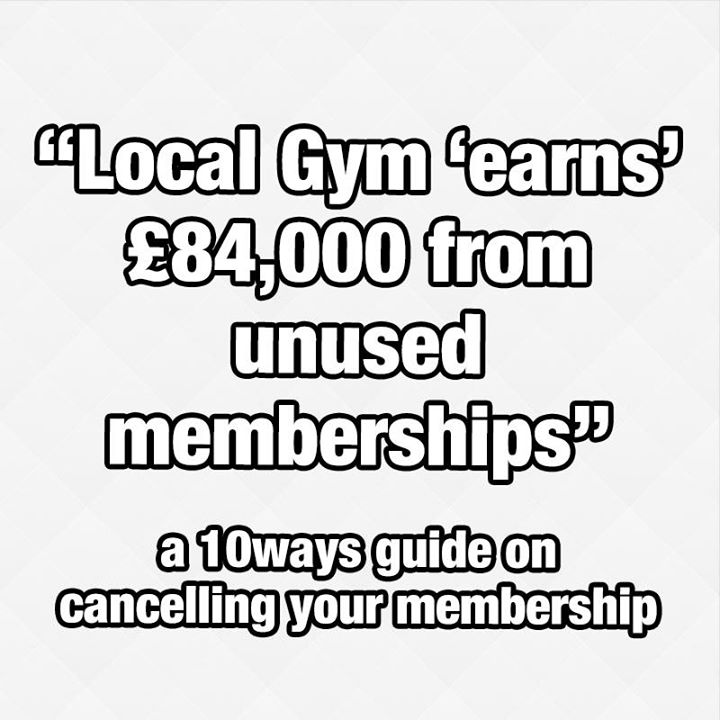Amazingly such a gym exists however it’s in the US and we don’t know of a UK equivalent (anyone?). The ‘trick’ is each machine is wired up to generate electricity, so the more it is used the more money the gym can sell back to the grid + the whole gym is powered with Solar panels anyway so they have very little overheads.
This potential profit they make from your sweat also means the more you use the machines the lower your monthly subscription costs, so some people are paying £0 to exercise in a top of the range gym + the gym is still making money on top.
Problems we see with this idea:
- Gyms may become busier / full – however to offset this they could add times where people ‘earn’ more if they exercise at a certain time (e.g. 9-12pm is quiet so give people 1.5x the credit if they exercise in those hours).
- It’s will take some hard work to persuade gym owners to drop potential profits in the short term.
- Remember if everyone went to a standard gym it would cost a fortune, those that don’t visit gyms actually are subsidising your monthly gym membership!
- More people using = more repair/damage/issues to sort
Alternatives to this idea:
- What if gyms were publicly funded and you got a tax break if you exercised – it would (in theory) cut down on NHS bills and if they were covered in solar panels + generating electricity through exercise then surely everyone wins? Problem: Not everyone exercises in a gym… so would be unfair.
- ‘The more you go to the gym the cheaper it gets’ is already a thing. If you pay £20 per month and visit 4 times a month. You pay £5 each visit. Visit 8 times and you only pay £2.50 a visit. Visit 25 times and it costs £0.80.
- App alternatives – You set up a goal and pay an amount of money that gets locked away, each time you check-in at the gym you earn money (don’t worry you can earn more than you put in) but if you don’t check-in you pay a ‘fine’. The fine money goes towards other people who have hit their target.
- Go to a gym that only allows certain people. One gym in the US has 150 members, they have to exercise at least 5 days a week otherwise they get kicked out, also if they give an excuse they’re kicked out. Those 150 people are actually using the gym and they get charged about $500 (£325) a month (just shows how many people must not go at the £10-£20 gyms)
- Buy your own equipment – expensive to start with but the more you use it the cheaper it becomes! eBay is a great place but using our local deal finder to find the bargains is an even better idea
Mind games that gyms play
Most businesses would close if nobody turned up however owners of gyms want their places to be quiet, here are some of the tricks of the trade:
- Generally gyms aim for people that are extremely excited to join the gym but not actually dedicated enough to wake up an hour earlier each day to go to the gym, in fact they often aim for around half of their members not to show up, they do this by actively hunting for those people through ads/marketing etc
- As an example, a gym in the US (Planet Fitness) has a 300 capacity gym space but has over 6000 members. If they all came at once or even all on the same day they wouldn’t be able to cope.
- Design + Building architecture to make it attractive to certain people (those who think it will be a great idea to sign up and use the facilities but actually won’t turn up when it’s raining, a little bit windy or snowing somewhere in Europe).
- The designers of gyms that want to take advantage will add clear doors, large posh signages, sofas, lounges, bars, shops, mirrors, restaurants, posh clothing/towels, slogans, music, spas, saunas, welcome desks (designed like a bar/pub) all before anyone sees ANY gym equipment – this is so it feels safe for those who don’t want to actually exercise. In other words they actively design gyms to not look like gyms so people will feel comfortable.
- In fact it’s so common that one gym designer/developer in the US has built 500 gyms all with welcome desks that don’t just look like bars but actually are manufactured as bars to ensure new guests feel comfortable approaching.
- The weight/lifting rooms are often hidden away as these generally scare new potential members.
- Annual contracts – precommitment. Humans will picture themselves in 12 months time looking at their best, they will imagine how much happier they will be and are more than willing to tie themselves down to a long yearly contract. In fact humans will actively think “if I pay this much and can’t leave for a year I will definitely go”, anyone that thinks like that is bound to waste money.
- Most gyms will lose about 50% of their members each year, so it’s very important that they prove they’ve giving you good value for money. This is why you see things like free massage chairs, free events, free goodie bags (that are actually just promotional items), free parking, free food, free drinks, free classes and even free pizza days (yes really). Then when the renewal form comes through at least some of those people will continue to pay.
- Tons of people think they go to the gym more than they do – all gyms will keep a track of you and when you visit and they then can target you (or not) to receive certain email newsletters etc. e.g. invite you to get a freebie etc to keep you sweet.































![How to get sent crates of Heineken 0.0 sent to your workplace [April 24th 2020]](https://10ways.com/wp-content/uploads/2020/03/heineken-100x100.jpg)

